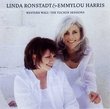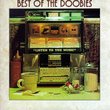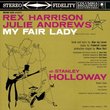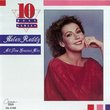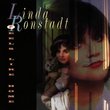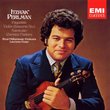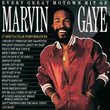| All Artists: Frederick Loewe, Moss Hart, Julie Andrews, Mary Berry, Robert Goulet, Richard Burton, Alan Jay Lerner Title: Camelot (Original Broadway Cast) Members Wishing: 0 Total Copies: 1 Label: Sony Release Date: 6/2/1998 Album Type: Cast Recording Genres: Pop, Soundtracks, Broadway & Vocalists Styles: Vocal Pop, Musicals, Traditional Vocal Pop Number of Discs: 1 SwapaCD Credits: 1 UPCs: 074646054222, 5099706054221 |
Search - Frederick Loewe, Moss Hart, Julie Andrews :: Camelot (Original Broadway Cast)
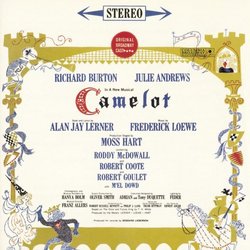 | Frederick Loewe, Moss Hart, Julie Andrews Camelot (Original Broadway Cast) Genres: Pop, Soundtracks, Broadway & Vocalists
For one brief, shining moment, there was a place known as Camelot--and this 1961 recording is the only document available of JFK's favorite musical, the one that's been used to describe his presidential administration ever... more » ![header=[] body=[This CD is available to be requested as disc only.]](/images/attributes/disc.png?v=a4e11020) ![header=[] body=[This CD is available to be requested with the disc and back insert.]](/images/attributes/disc_back.png?v=a4e11020) ![header=[] body=[This CD is available to be requested with the disc and front insert.]](/images/attributes/disc_front.png?v=a4e11020) ![header=[] body=[This CD is available to be requested with the disc, front and back inserts.]](/images/attributes/disc_front_back.png?v=a4e11020) |
Larger Image |
CD DetailsSynopsis
Amazon.com For one brief, shining moment, there was a place known as Camelot--and this 1961 recording is the only document available of JFK's favorite musical, the one that's been used to describe his presidential administration ever since. Truthfully, Lerner and Loewe's musical score for this retelling of the King Arthur story doesn't measure up to My Fair Lady, which was still playing when Camelot opened on December 3, 1960. That being said, the three principals here were stronger musically than their 1968 film counterparts--Julie Andrews and Robert Goulet (who became a star as Lancelot, thanks to "If Ever I Would Leave You") could sing, while the pre-Liz Richard Burton could recite those great lines with Shakespearean flair, even if he never scored a hit with "MacArthur Park." --Bill Holdship Similarly Requested CDs
|
CD ReviewsAll That's Left Of A Classic Eric Paddon | Morristown, NJ | 04/13/2001 (4 out of 5 stars) "The original cast of "Camelot", Richard Burton as Arthur, Julie Andrews as Guinevere, Robert Goulet as Lancelot, is one of those rare coming togethers of great talent in a Broadway show that all you can do is wonder why in God's name (a) the show wasn't recorded in its entirety back then on film or tape and (b) none of these participants reprised their roles in the dreadful 1967 movie version. What was Joshua Logan smoking when he insisted on Richard Harris instead of Burton? It remains one of the most baffling stories in the history of Broadway musicals mucked up by Hollywood.This CD of the original cast is therefore all the more precious because its your only chance to sample this wonderful assemblage of talent performing the best Lerner-Loewe score next to "My Fair Lady". The remastered CD is a must, putting the songs back in their right order and sounding much better than the earlier CD pressing did.Ultimately, the CD gets only four stars from me not because of its presentation, but because of the manner in which this recording was first produced back in 1960. Goddard Lieberson, the head of Columbia Records who produced cast recordings back then was notorious for damaging the essence of what a cast recording was supposed to be, i.e. a document of the show and its music and instead often made some very bad tamperings with the material in order to achieve a supposedly "purer" musical listening experience. This meant (a) always eliminating all dialogue snippets that led into a song or was spoken between verses (b) sometimes eliminating whole musical sections that didn't sound "musical" enough and were more stage bound. In the case of "Camelot" this supposedly more "artistic" decision results in the loss of Julie Andrews lines and contributions in the title song so that it's a Burton solo. We also lose Burton's angry prelude to "How To Handle A Woman" where he rails against Merlin, and finally the ending which reprises the title song has been tampered into something it wasn't and never was on stage. Goddard Lieberson's aversion to dialogue from the play in this case not only harmed the integrity of this recording as a document of the play, but also robs us the ability to hear how really good Burton, Andrews etc were in their performances as well as their singing. The end result is still magnificent in the form its presented, but should have been more definitive than it turned out to be." For One Brief Shining Moment.... TundraVision | o/~ from the Land of Sky Blue Waters o/~ | 06/08/2000 (5 out of 5 stars) "Ah, the magical metaphors! Lerner & Lowe's wonderous Broadway musical of the Days of King Arthur and the Round Table has since become forever linked to the JFK presidency. Here we have the joyous voices of Richard Burton, Julie Andrews, Robert Goulet and Roddy McDowall. The rapture! And then the fall. Contrast King Arthur's/Richard Burton's uplifting version of the "Camelot" song (#5) with his Finale Ultimo (Camelot Reprise - #18) So there you are, cruising along, with the CD cranked up, reveling, and the last song comes on. Unless you are in a particularly buoyant mood, that last song can produce a profound wave of melancholy and the people next to you at the stop light will wonder why you are crying."... Ask every person if he's heard the story& tell it strong & clear if he has not -That once there was a fleeting wisp of Glorycalled Camelot.... Don't let it be forgotThat once there was a spotFor one brief shining momentThat was known as Camelot."Goosepimple stuff." Fine voices make this one a winner. Tommy Peter | 01/25/2000 (4 out of 5 stars) "Though I never saw this show on Broadway, this cast album gives me a very good impression. The words and music really are perfectly entwined, and the songs are really good, much more memorable than they were when sung in the film, (though the film, IMHO, is still pretty good). What's really great about this recording is the great voices you hear singing these songs. Julie Andrews is surprisingly operetic as Guenevere, but nevertheless is by turns, vibrant, lusty, and sad, and is always good. Robert Goulet as Lancelot has a robust voice that comes in handy during "C'est Moi" and makes "If Ever I Would Leave You," a beautiful song anyway, a joy to listen to. Roddy McDowell as Mordred sparks the album with his one song, "The Seven Deadly Virtues." You even get to hear John Cullum; he's one of the knights in "Then You May Take Me to the Fair." As for Richard Burton's Arthur, he does struggle a bit at first, talk-singing "I Wonder What the King Is Doing Tonight" and the first part of "Camelot" a bit shakily. However, he pulls himself together to give a great performance of "How to Handle a Woman" and, though he goes right back to talking, is still powerful in the final reprise of "Camelot." We truly shouldn't let this show be forgot, or this cast album. It was one brief shining moment of many in Broadway's history."
|

 Track Listings (18) - Disc #1
Track Listings (18) - Disc #1